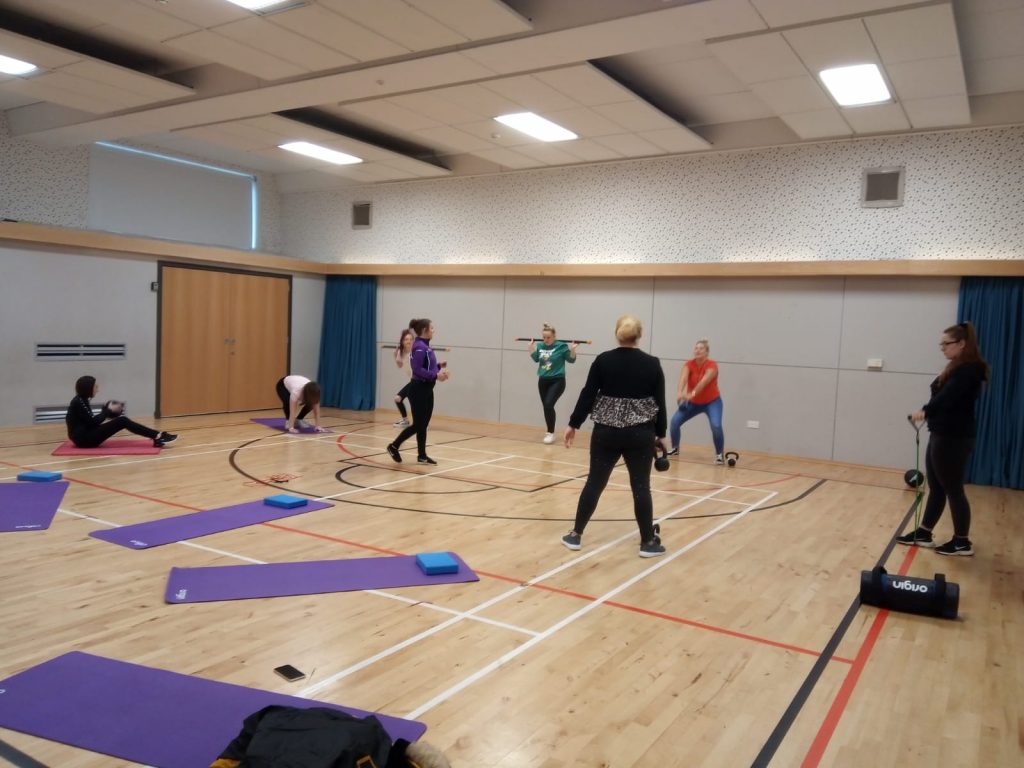First Steps Young Parents Project
Smart Gym CIC came to the group to give a free taster session to the young parents.

04/03/2020
News
- Ashleigh McConnel, Fitness & Mindfulness
Looking after your physical and mental wellbeing can often feel like a challenge. See our Health and Wellbeing information and services.
Smart Gym are about breaking barriers and making wellness achievable, affordable and accessible for every parent. Founder, Dean Hardie, started developing the concept in 2017 following the traumatic birth of his son and ensuing mental health issues. It was through his own research and recovery that Dean identified a critical gap in Scotland’s mental health system and began developing a way to fill it. Since then, Smart Gym has grown to be recognised as a brand and service that parents can trust – one that puts people before profit and takes mental health seriously.
Dr Daniel Martin, a consultant psychiatrist and director of Smart Gym said: “We often consider the mind and body as though they are completely separate. This is definitely not the case. The body needs the mind to work properly and vice versa.”
Smart Gym embraces this message through activities that reconnect parents with themselves and help them get to a place where it feels good to wake up in the morning.”
If you are a young Parent in Glasgow or know of someone who would be interested in joining the First Steps Young Parent Project contact the Glasgow office for information.